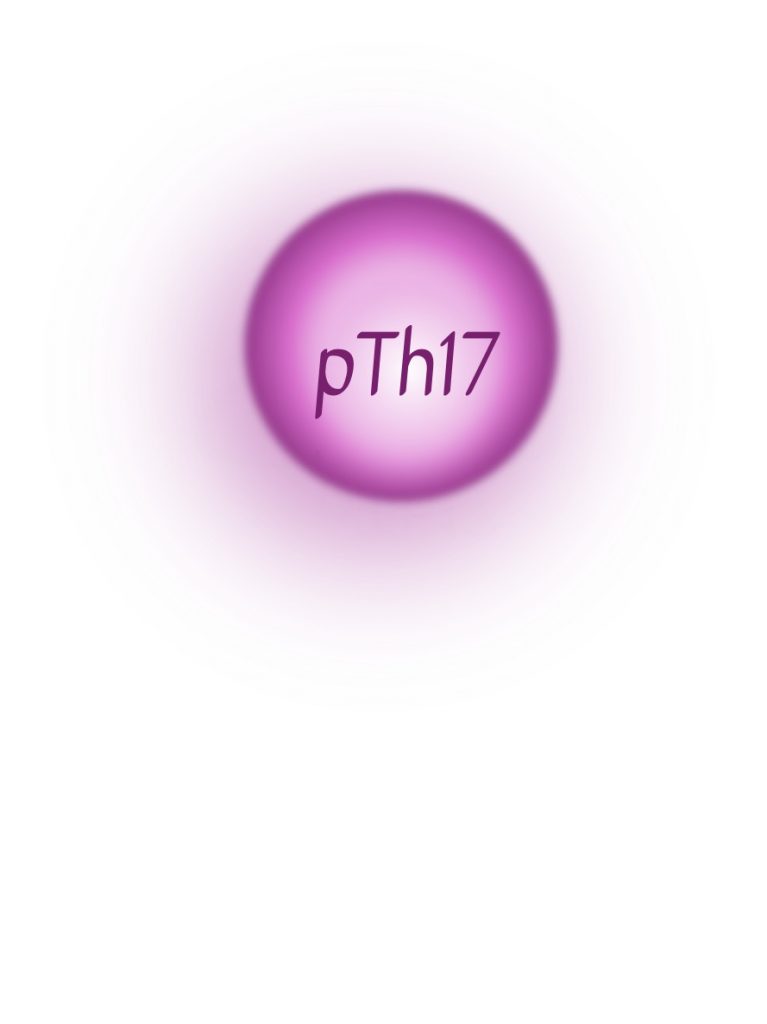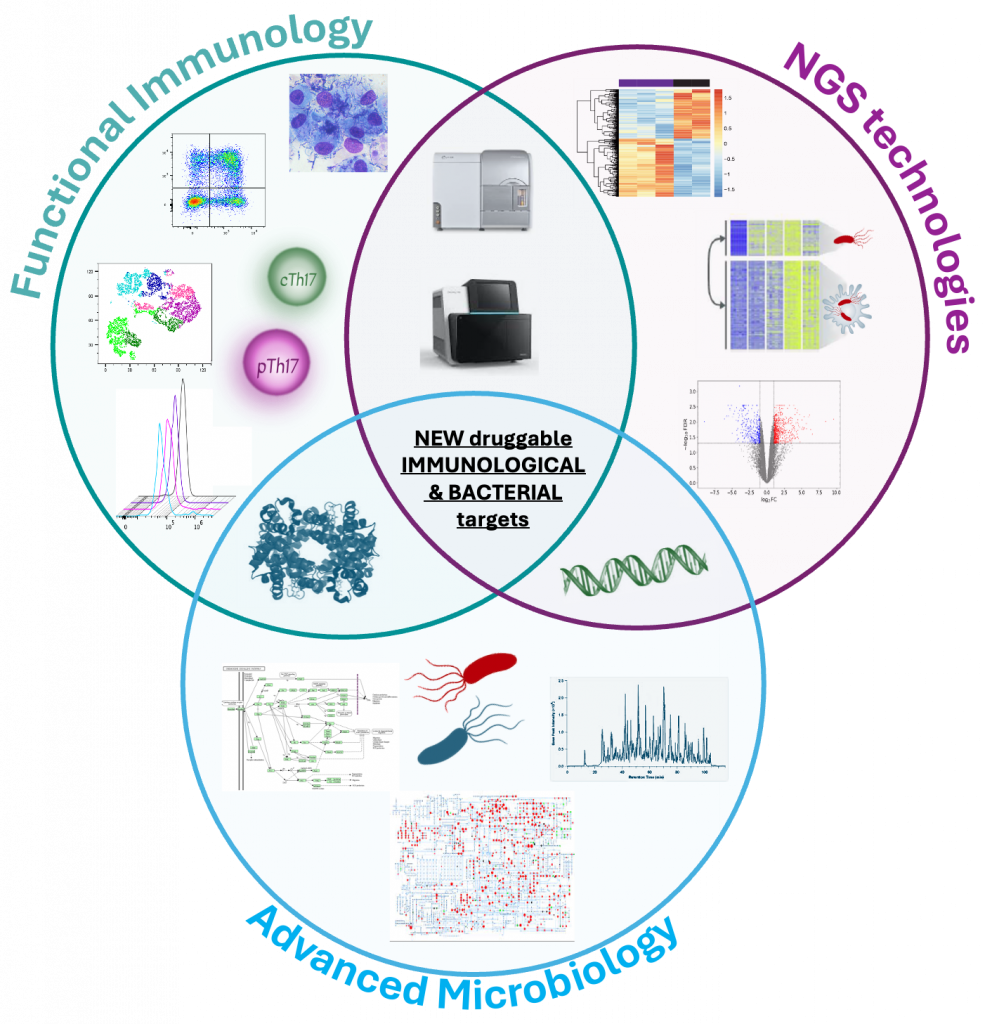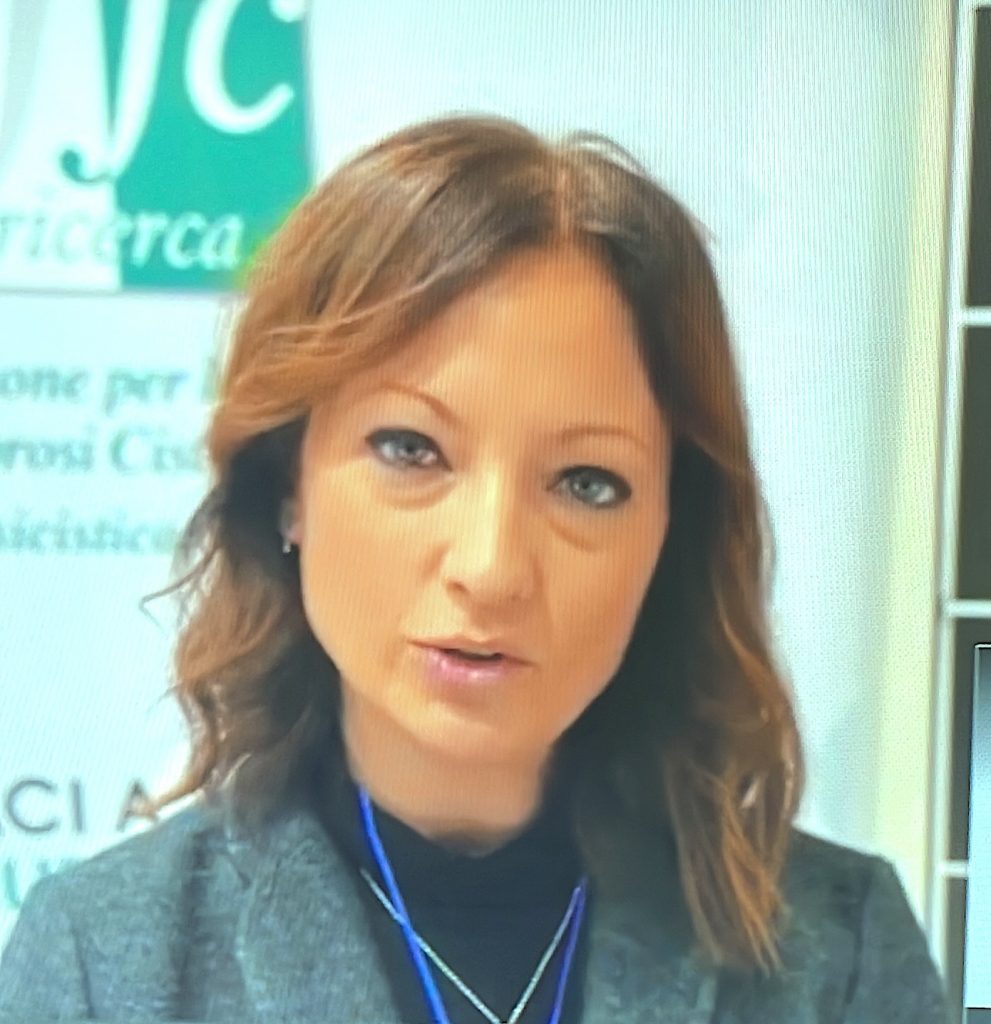
PaThos17 Laboratory focuses on the intricate mechanisms of interplay between T lymphocytes and bacterial pathogens that underlie or promote the progression of several chronic inflammatory diseases.
By leveraging a multidisciplinary approach that combines functional immunology, advanced microbiology, and next-generation sequencing technologies, we delve deeply into the cellular and molecular processes that drive a detrimental activation of the adaptive immune system in response to bacterial pathogens.

With this multidisciplinary approach, we aim to further advance the understanding of the sophisticated strategies employed by bacterial pathogens to escape immune surveillance and to translate fundamental discoveries — such as novel bacterial and immunological targets —into potential clinical applications”


moira.paroni@unimi.it
Moira is a researcher specialized in cellular microbiology and immunology, with a career dedicated to studying the interactions between the immune system and bacterial pathogens.
After earning her degree in Biotechnology at the University of Padua (CRIBI), she moved to the San Raffaele Scientific Institute (DIBIT-HSR) to pursue a PhD in Molecular and Cellular Biology. Her doctoral research focused on dissecting the mechanisms underpinning host-pathogen interactions in the context of Cystic Fibrosis.
She then conducted her postdoctoral studies at the National Institute of Molecular Genetics (INGM), where she undertook an immunological and functional characterization of Th17 cell subsets, focusing on their dual roles in mediating protective immunity and contributing to the pathogenesis of inflammatory bowel diseases (IBD).
Currently, Moira holds the position of Associate Professor in the Department of Biosciences at the University of Milan. Her research group is dedicated to investigating the molecular and cellular pathways that govern the differentiation, activation, and expansion of pathogenic Th17 cell subsets in response to bacterial pathogens in several diseases.
